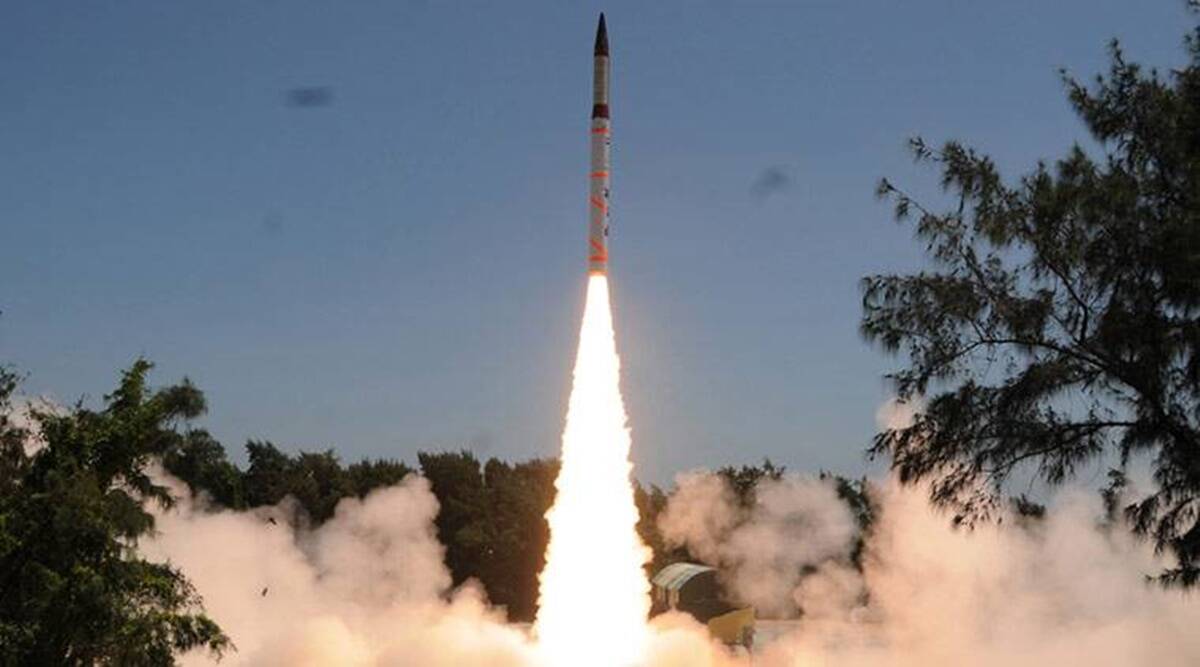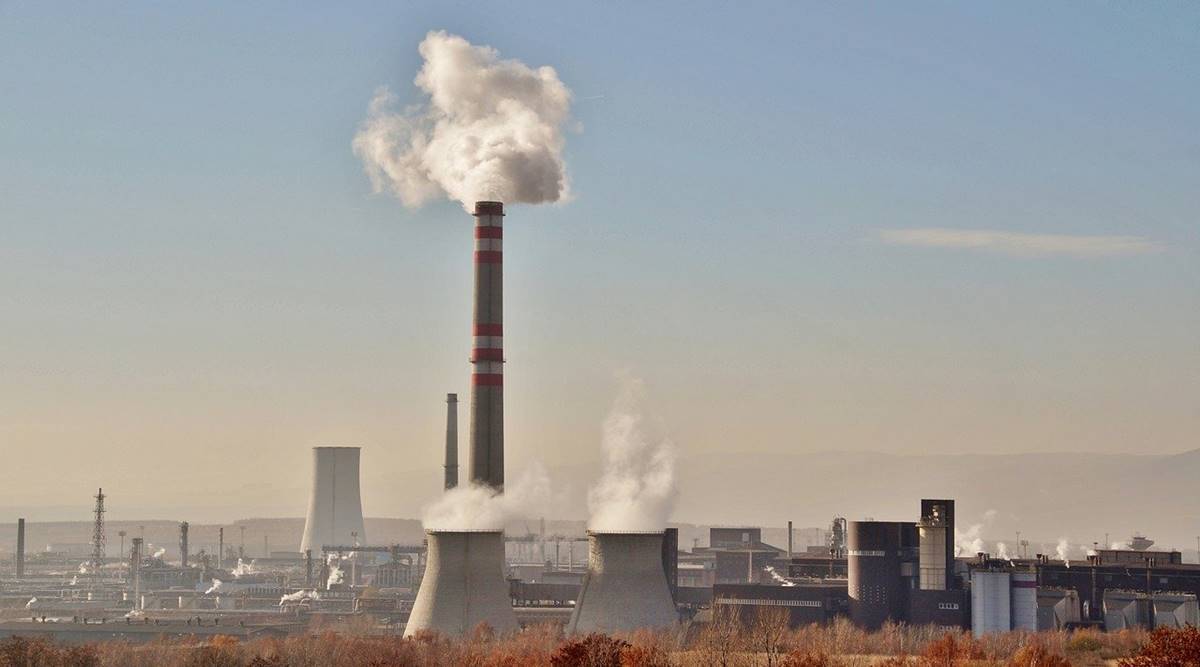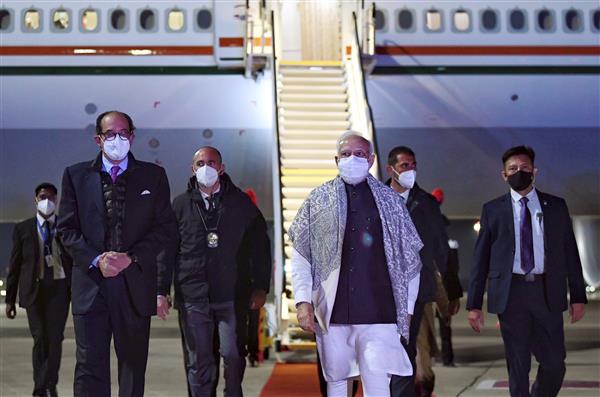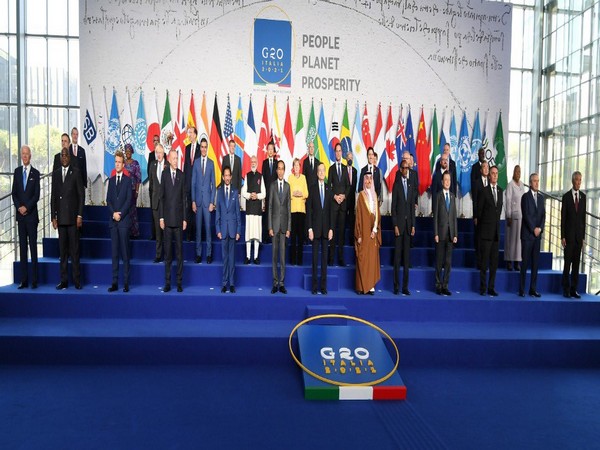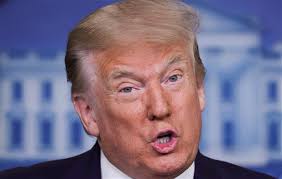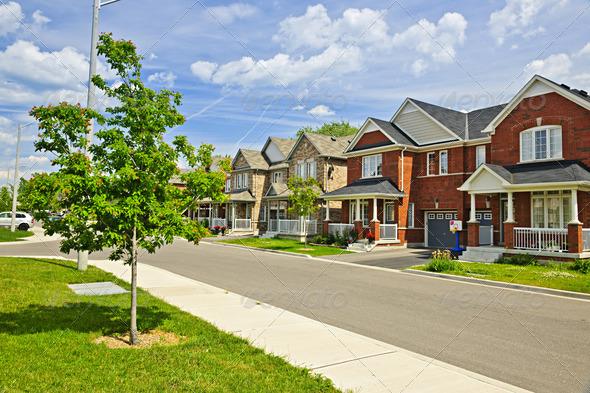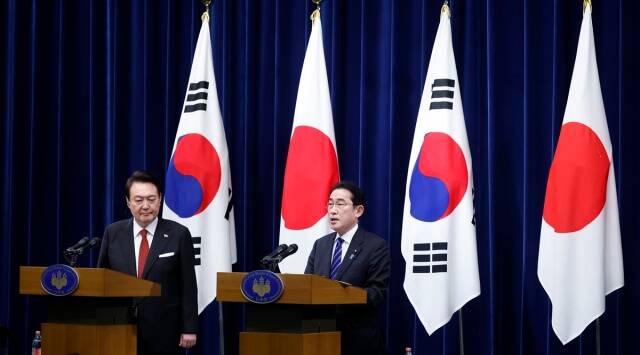
03/17/2023
Tokyo, Mar. 17: Japan and South Korea agreed to resume regular visits between their leaders and took steps to resolve a trade dispute as a highly anticipated summit began Thursday, a sign that the two countries are rebuilding their nations’ security and economic ties as they try to overcome a century of difficult history. The summit could revise the strategic map of northeast Asia. The two U.S. allies, who have long often been at odds over their history, are seeking to form a united front, driven by shared concerns about a restive North Korea and a more powerful China.
Japanese Prime Minister Fumio Kishida and South Korean President Yoon Suk Yeol both stressed the importance of improved ties as they opened Thursday’s summit, hours after a North Korean missile launch and encounters between Japanese and Chinese vessels in disputed waters.
“I’m delighted that a chance has come for us to open a new chapter of Japan-South Korea relations together,” Kishida said in his opening remark. He added that their meeting will mark the resumption of regular visits between the leaders, which have been on hold for more than a decade.
Yoon said Thursday’s meeting “has special significance as it shows the people of both countries that South Korea-Japan relations are off to a new beginning after being plagued by various issues.” He added that the two countries that share same democratic values “are partners that must cooperate on security, economic issues and global agendas.”
Yoon said “the ever-escalating threat of North Korea’s nuclear missile program poses a huge threat to peace and stability not only in East Asia but also to the (broader) international community.” “South Korea and Japan need to work closely together and in solidarity to wisely counter the threat,” he added.
Hours before the summit began, South Korean Trade Minister Lee Chang-yang said that Japan had agreed to lift export controls on South Korea following talks this week, and that South Korea will withdraw its complaint to the World Trade Organization once the curbs are removed.
Japan and South Korea have long had disputes over the 1910-1945 Japanese colonization of the Korean Peninsula and atrocities during World War II, which included forced prostitution of “comfort women” for Japanese soldiers, and territorial disputes over a cluster of islands. Ties reached a nadir when the South Korean Supreme Court ordered Japanese companies to pay compensation to Korean victims or bereaved relatives in 2018, and Japan imposed trade sanctions on South Korea shortly after.
Japanese Economy, Trade and Industry Ministry said Japan acknowledged improvement in South Korea export controls during the talks and that as a result of Seoul’s decision to drop the WTO case, Japan decided to drop restrictions against South Korea and restore the country to the status it had before July 2019.
Japanese export controls had covered fluorinated polyimides, which are used in organic light-emitting diode (OLED) screens for TVs and smartphones, and photoresist and hydrogen fluoride, used for making semiconductors.
Lee’s ministry said the countries will continue to discuss restoring each other to preferred trade status.-Agencies
